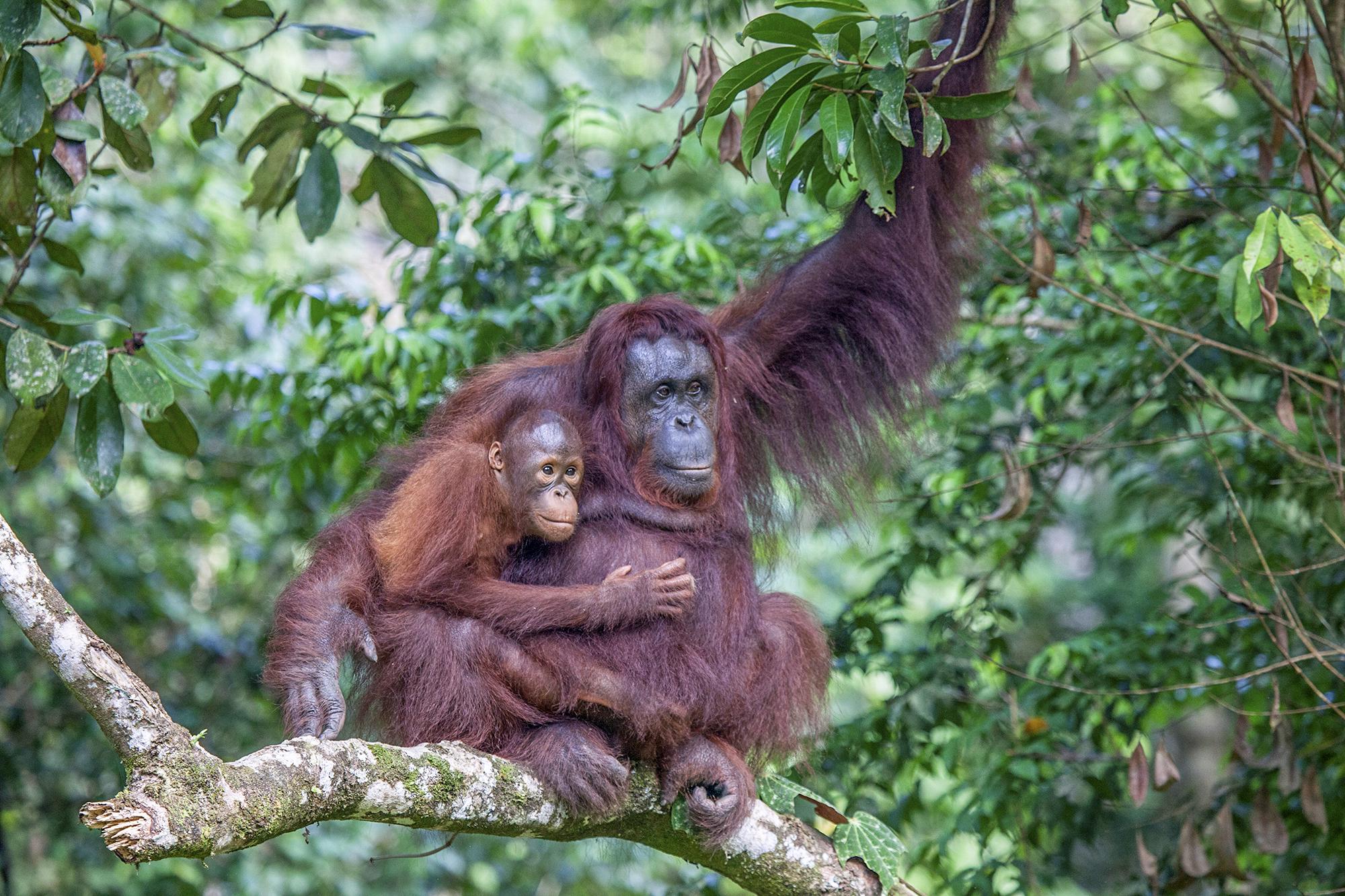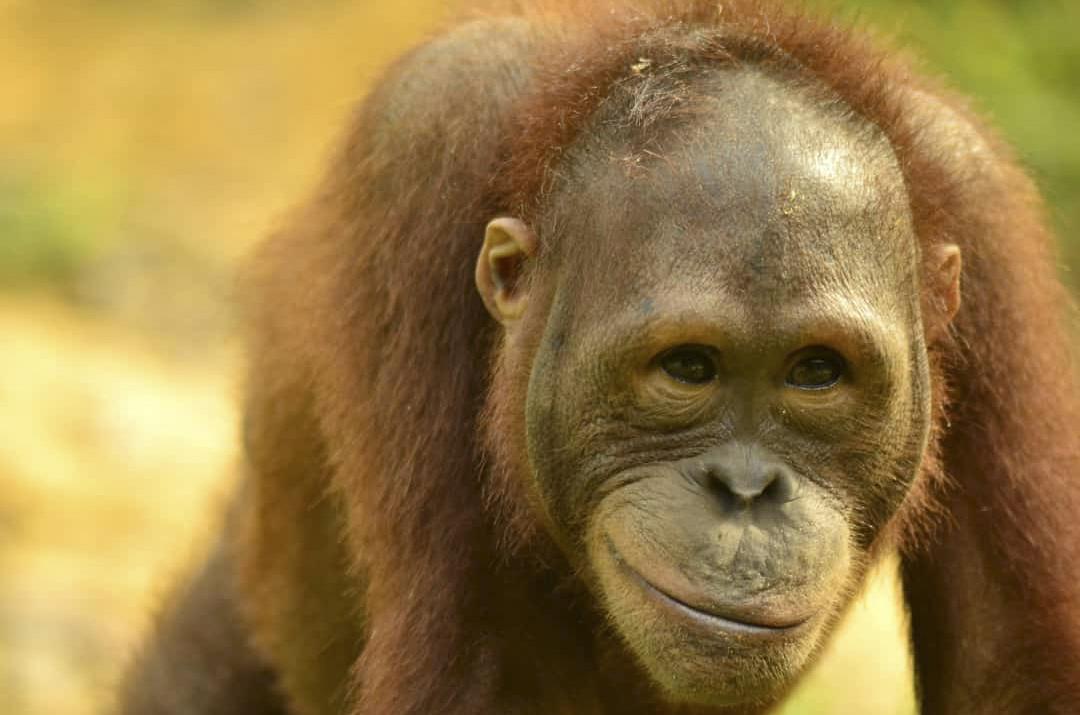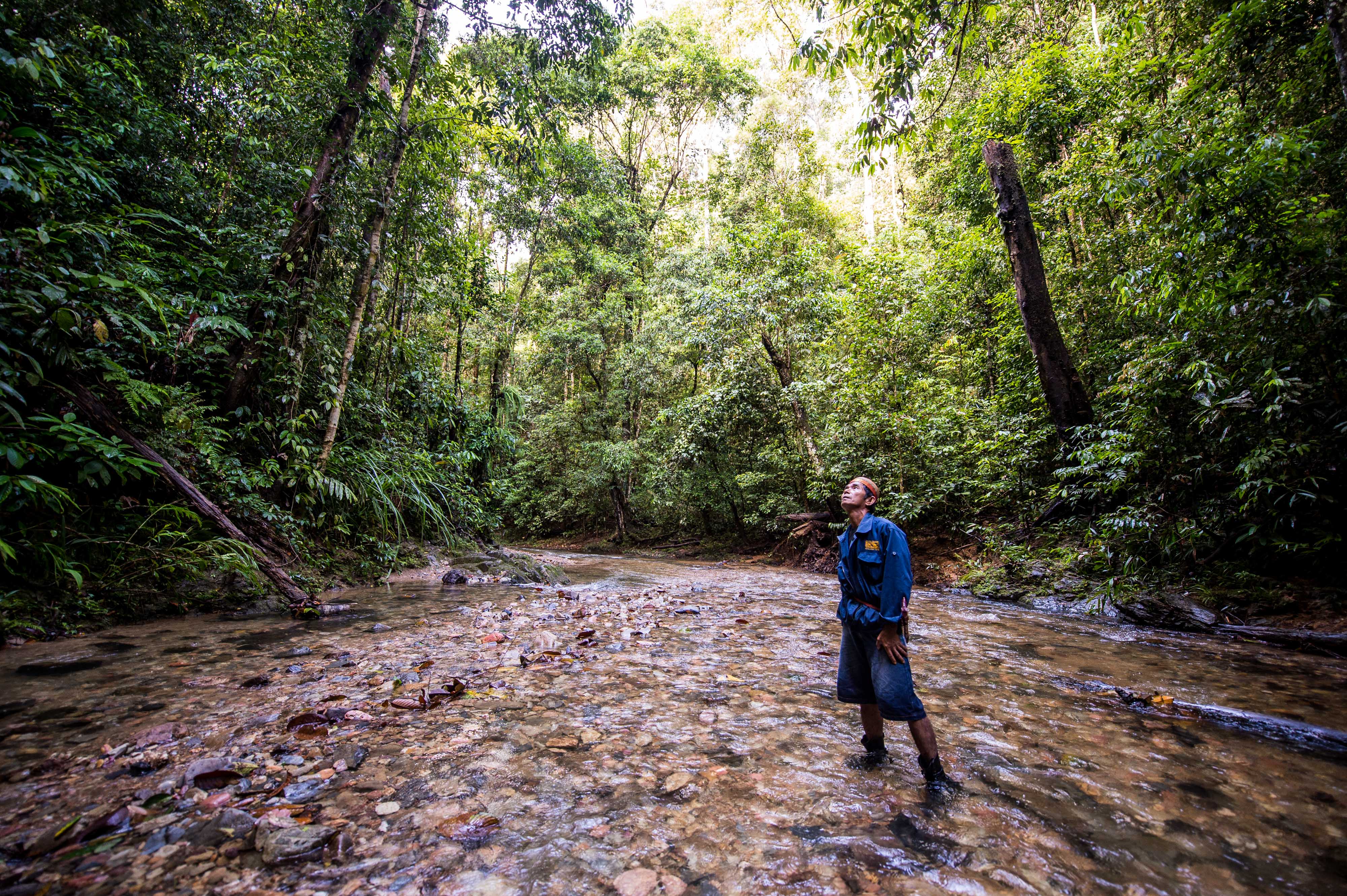Saving Orangutans and Their Forest Homes
Orangutans are some of our closest living relatives, and the connection we feel with them is instinctual.
Did you know the word “orangutan” means “person of the forest” in Malay? And for good reason: humans and orangutans share 97percent of the same DNA. These magnificent creatures are some of our closest living relatives, and the connection we feel with them is instinctual, primal; the urgency we feel to protect them is personal.
Yet tragically, orangutans are in grave danger. The orangutan population has been reduced to just 50 percent of what it was in 1960, and if we don’t make big changes, 22 percent may be lost in the next five years.

Their lush and ancient forests are being chopped and burned for the timber and pulp paper trades, for palm oil plantations and for mining: 3 million hectares, an area roughly 27 times the size of Hong Kong, are destroyed every year. Because orangutans spend most of their lives in trees, cutting down forests is equivalent to taking away the ground beneath their feet.
Poachers and traffickers in the illegal pet trade also pose a significant threat to orangutans.
Hope for Orangutans
Limiting deforestation in Indonesia is the only chance we have to save wild orangutans from extinction. And saving Indonesian forests is important for many other reasons as well:


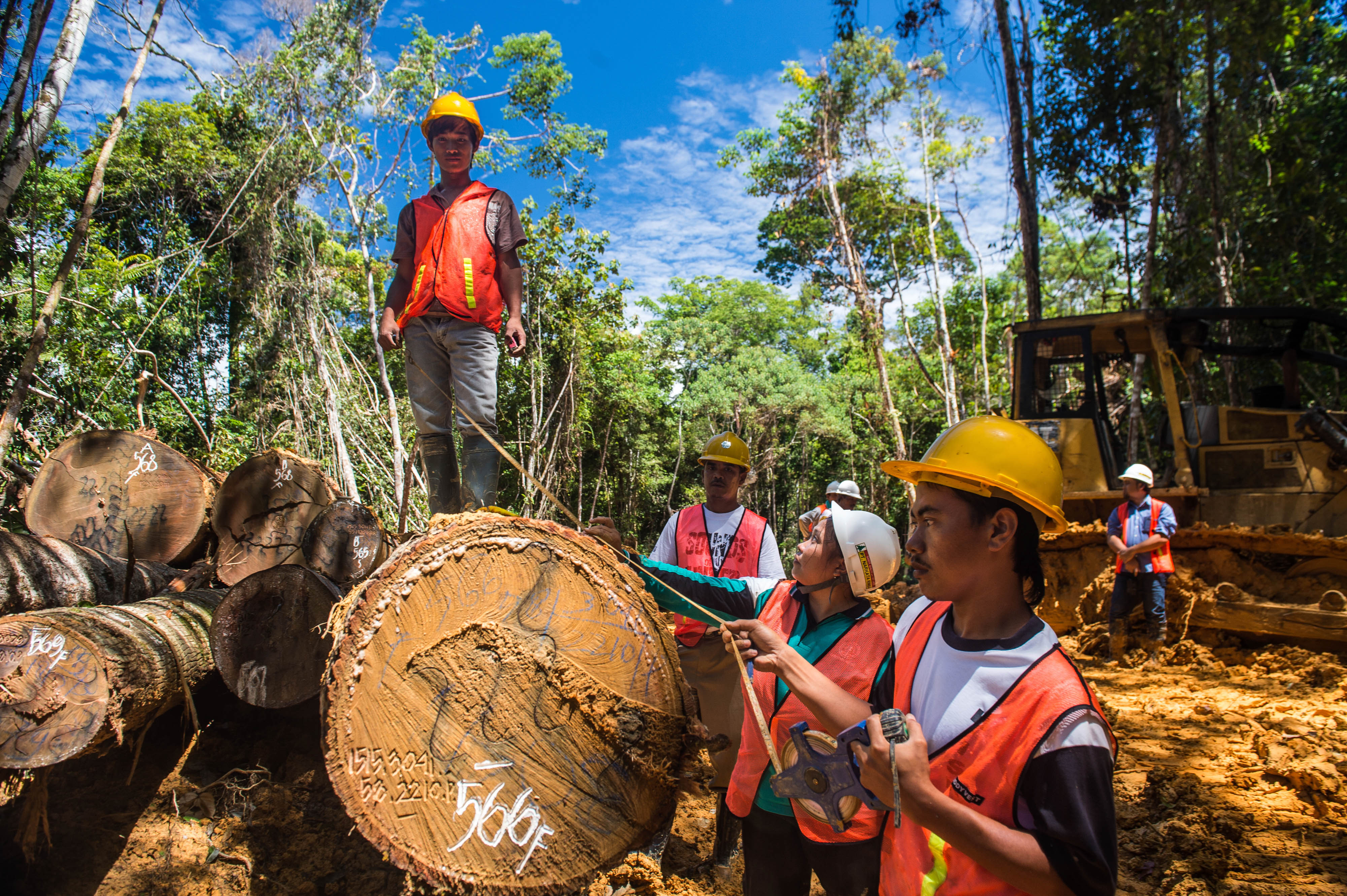
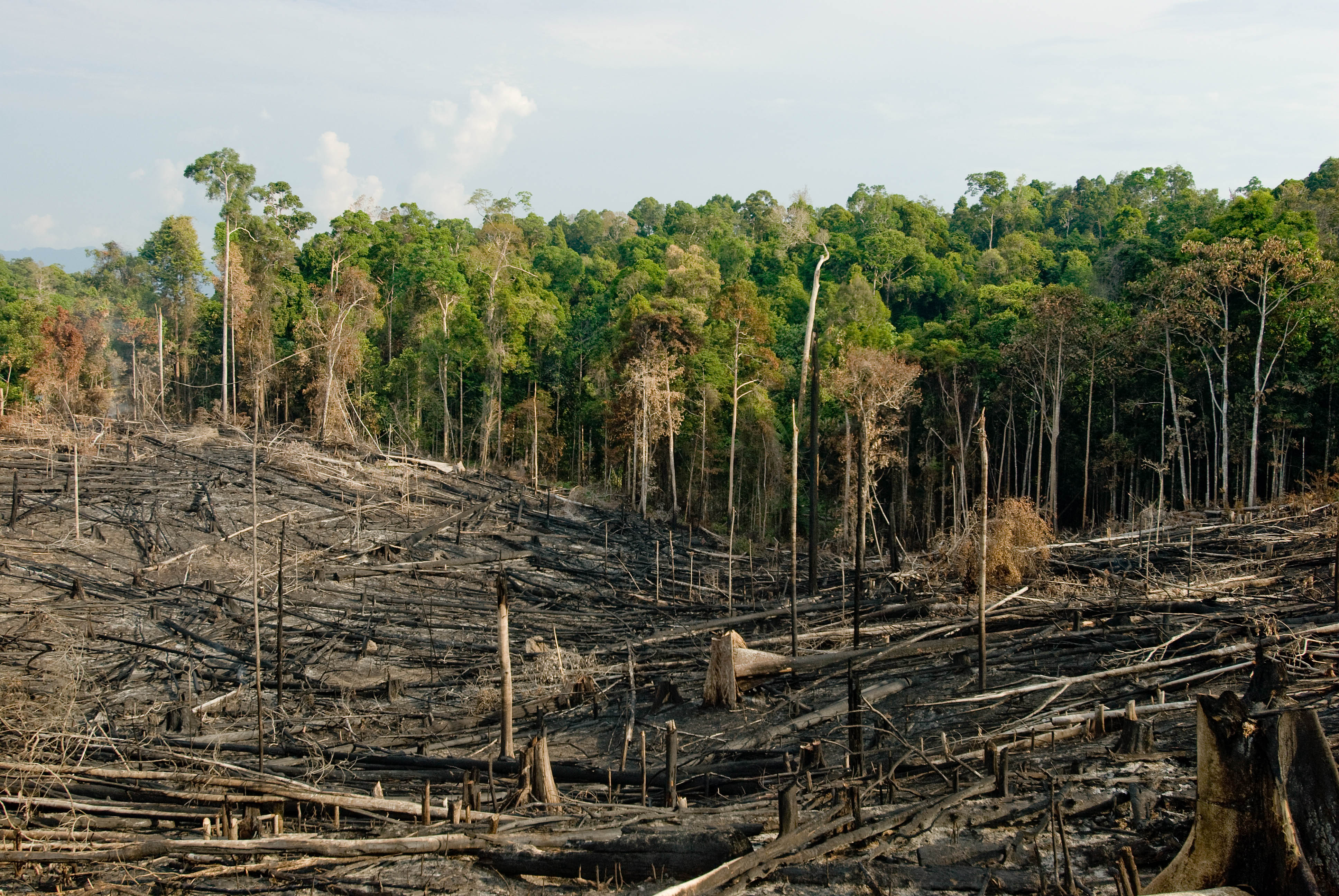
But reducing deforestation in Indonesia is not easy: many competing interests must be weighted and balanced, and concessions must be made. The timber, palm oil and pulp paper industries are not only crucial drivers of the national and local economies, but their resulting products are ubiquitous in the global supply chain. From kitchen cabinets to furniture, from notebooks to peanut butter to face cream, it’s likely that at least one product you use daily comes from Indonesian deforestation.
TNC’s international reputation as a collaborator and a convener has allowed us to forge agreements across sectors in Indonesia and demonstrate that balanced use here is possible.
- TNC engages Indonesian communities in SIGAP—a Bahasa Indonesian acronym meaning Communities Inspiring Actions for Change—to help them secure legal rights to their forests and other natural resources and develop plans to manage them sustainably. We’ve worked with 180 villages so far.
- TNC works with local communities to develop forest-friendly livelihoods such as beekeeping and sustainable agriculture.
- TNC scientists are using bioacoustics monitoring to assess the health of different forest and land-use types, so that communities, governments and businesses can plan the best balance of forest use and forest conservation.
- TNC forges consensus with governments and companies to more sustainably conduct business, by shifting to reduced impact logging and low emission palm oil development, for example.
- Collaborate with partners, communities and governments to improve management on 10 million hectares of forests, including almost a half million hectares of critical orangutan habitat.
- Launched a Green Growth Compact with the government of Indonesia’s East Kalimantan Province to reduce emissions there by 1.000 tons of CO2 per HK$7.8 million GDP while increasing economic growth by 8 percent.
While orangutans used to swing the treetops across Southeast Asia, today, they live only in Indonesia. They face many challenges to their survival, but thanks to people, communities and organizations working to save them, they stand a fighting chance. Will you help?
